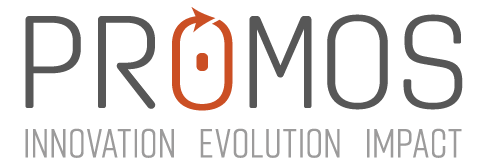Greenhouse gas concentrations are at their highest levels in 2 million years, the UN reveals, and emissions continue to rise. 2011-2020 was the warmest decade of all. As a consequence of climate change, we are also seeing the collapse of biodiversity and the growing acidification of oceans – and it does not stop there. This phenomenon is directly affecting people’s health, safety, housing and ability to grow food – and it is even more concerning when we observe it through intersectional lenses.
In addition, the Covid-19 pandemic not only exposed our social and economic systematic weaknesses but unleashed a human development crisis. The pandemic hit hard on the fundamental tripod of human development – income, health, and education – and inequality has sky-rocketed. For some of these elements, current conditions regressed to levels of deprivation and contraction that were last observed in the mid-1980s.
For the ninth year in a row, global peace has also deteriorated due to decreasing levels of societal safety and security, increasing ongoing domestic and international conflict, and increasing levels of militarisation. In the words of UNDP, this is a moment where “social mobility is down, and social instability is up” – as a consequence, collective action becomes harder in such a context of social fragmentation.
Tomorrow is too late
We are indeed living at a time of multiple crises. Professor Muhammad Yunus, Nobel Peace Price Laureate, social entrepreneur, banker, economist, civil society leader, and a great inspiration for our Impact Hub movement, was assertively precise when he told us that “tomorrow is too late”.
At Impact Hub, we understand the urgency of acting for a better future – one that is good for people and the planet – today. That’s why we support entrepreneurial impact makers and businesses that challenge the status quo, drive the creation of more inclusive and decent job opportunities and economic growth, and enable the acceleration of inclusive and sustainable innovation at scale.
From local to global, our community of 24,000+ impact-driven entrepreneurs, creators, innovators and intrapreneurs is tackling our time’s main pressing issues through business. In our latest Global Impact Publication, we show the impactful stories of the members in our network – made up of 100+ communities in 60+ countries across 5 continents -, and how we enable them to build better and stronger systems and economic models.
We can all take action, today
Across the Impact Hub network, we are taking action in the shape of programs that facilitate startup-corporate collaboration – ranging across diverse sectors, from sustainable food to circular fashion to healthcare -, international events dedicated to enhance and support innovative solutions, and partnerships with organizations that aim at converging purposes – to accelerate the transition to a more green and inclusive economy.
We are also focusing on creating more inclusive incubation and acceleration ecosystems, have increased our work in support of entrepreneurs from underrepresented communities, are publishing more research on inclusive entrepreneurship and are undertaking relevant Social Enterprise Policy related work.
We believe that the time to act is now. And the way to act is together. If you are eager to learn more about collaborations for impact and entrepreneur-support programs, check out our 2021 Global Impact Publication. You will find interesting data and insights on impact entrepreneurship, especially regarding the resilience of social entrepreneurs through Covid-19, and be inspired by stories of action from across the globe. Read it to discover how human and impact-centred approaches to business can make a (huge) difference and represent hope in such chaotic times.
[impacthub.net 30.09.2021]
